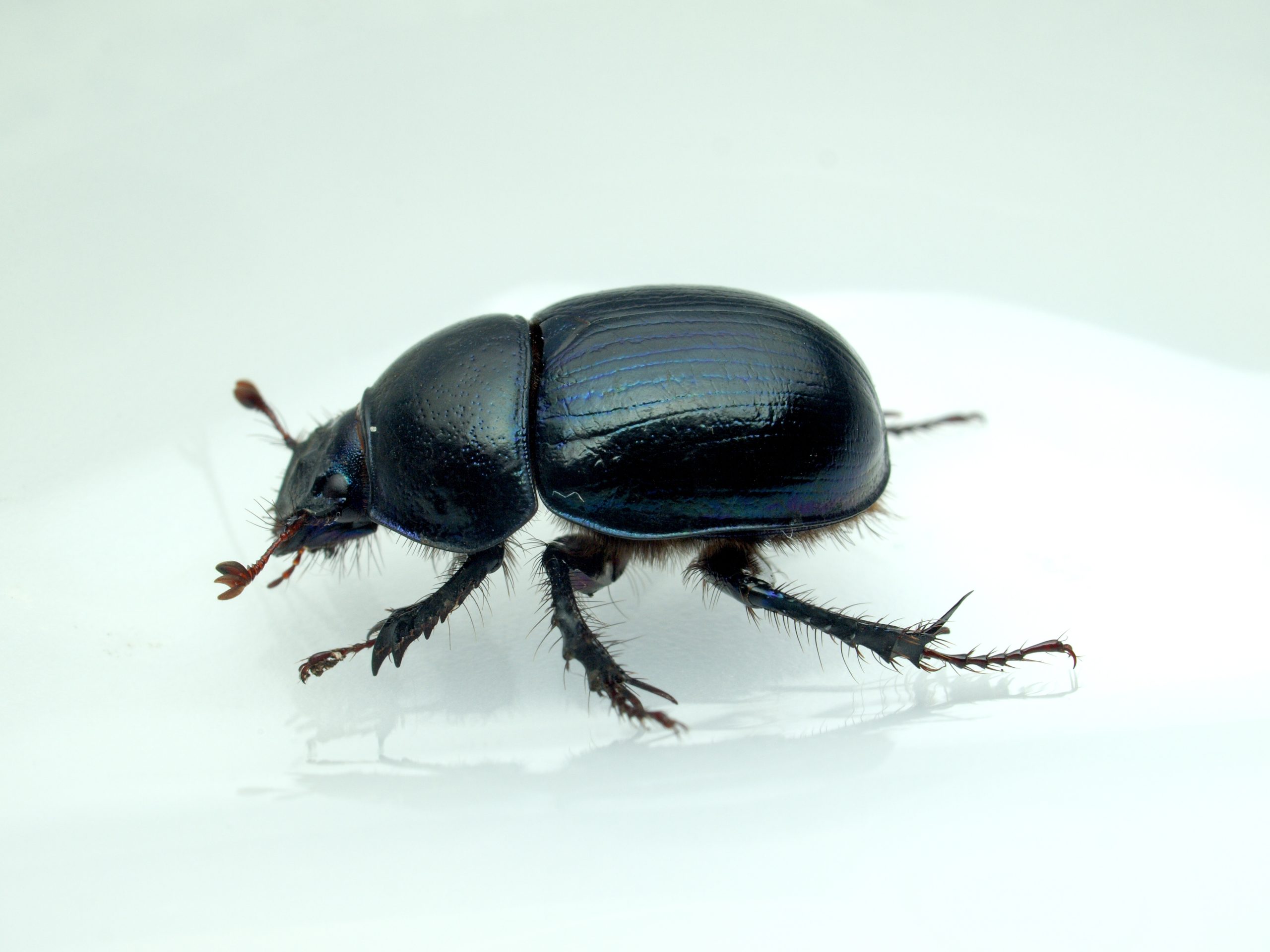Beetles in Las Vegas Homes — Carpet, Pantry & Wood‑Boring Beetles Explained


Beetles in Las Vegas Homes — Carpet, Pantry & Wood‑Boring Beetles Explained
Las Vegas isn’t just home to desert wildlife; our homes can play host to a surprising variety of beetles. Some, such as carpet beetles, chew tiny holes in fabrics; others infest stored foods; still others bore silently through wood. Because infestations often go unnoticed until damage is done, understanding beetle habits, signs and prevention is key to keeping your home safe.
Carpet Beetles: Tiny Fabric Predators
Carpet beetles (Anthrenus spp.) are small (1/16–3/16 inch), often mottled black, white, gray or orange. Adults feed on pollen and nectar outdoors and often enter homes through flowers or open doors. Female beetles lay about 100 eggs in dark crevices where larvae will have a food source. Eggs hatch in one to two weeks, and the fuzzy, carrot‑shaped larvae feed for nine months to three years on natural materials — wool, fur, feathers, leather, taxidermy and even dried pet food. They chew irregular holes through fabric, especially in closets, vents, baseboards and under heavy furniture.
Carpet beetle infestations spread slowly and often start when adult beetles fly from nearby nests or are brought in with secondhand furniture or cut flowers. Because larvae avoid light, damage may not be noticed until the infestation is advanced.
Prevention Tips:
- Deep cleaning: Regularly vacuum rugs, upholstered furniture, and hard‑to‑reach areas along walls and under couches. Rotate rugs and move furniture so hidden areas are exposed.
- Proper storage: Dry clean or launder woolens, furs and other susceptible items before storing. Store them in sealed containers or garment bags with repellents like naphthalene or paradichlorobenzene.
- Inspect and exclude: Check cut flowers and secondhand items for beetles; repair window and door screens; remove bird, wasp and rodent nests near the house.
- Mechanical control: Vacuum larvae and discard the vacuum bag immediately to prevent reinfestation; treat infested items by freezing (0 °F for 72 hours) or heating (120–140 °F for several hours).
- Insecticides: Only as a last resort and then only on cracks and crevices; insecticides won’t reach larvae hidden deep in fabrics.
Pantry Beetles: Unwelcome Guests in Your Food
Stored‑product insects are often called pantry pests. A wide range of beetles infest dry goods, including warehouse beetles, saw‑toothed grain beetles, flour beetles, drugstore and cigarette beetles. Infestations start when an already‑infested package is brought home; adults may also fly in from outdoors. Beetles can chew into plastic, paper or foil packages and will contaminate more food than they eat.
Prevention and Control:
- Buy wisely: Purchase dry goods in quantities that will be used within a few months; inspect packaging for holes or off‑odors and avoid damaged packages.
- Store securely: Transfer foods into glass, metal or heavy‑plastic containers with tight lids. Thin plastic bags and cardboard boxes do not stop beetles.
- Sanitation: Clean pantry shelves regularly; vacuum cracks and corners to remove spilled flour, grains or spices.
- Remove infestations: Discard heavily infested items in sealed bags. Salvage lightly infested foods by freezing them at 27 °F (for 3–7 days) or heating them at 140 °F for an hour.
- Monitor: Use pheromone traps to detect Indian meal moths and certain beetles; traps are for monitoring, not controlling, and insecticides are rarely needed.
Wood‑Boring Beetles: Silent Destroyers of Furniture & Structures
Powderpost, deathwatch and false powderpost beetles lay eggs in hardwoods such as oak, ash and bamboo. Larvae feed inside the wood for months or years, then emerge as adults through small, round exit holes surrounded by powdery frass. Once an infestation begins, control is difficult.
Prevention and Management:
Inspect & select:
Examine lumber and antique furniture before purchasing; avoid bringing firewood indoors except for immediate use.
Protect wood:
Paint or varnish bare wood to seal pores; maintain low moisture (below 15%) to discourage beetle development.
Remove and treat:
Remove and replace infested wood where possible. Small items can be heat‑treated (120–140 °F for 6 hours) or frozen (0 °F for 72 hours).
Professional options:
For structural infestations, licensed professionals can apply borate treatments or perform fumigation. Prevention remains the best approach, because infestations are hard to eradicate.
Beetles are diverse and persistent pests: carpet beetles quietly nibble at fabrics, pantry beetles contaminate food, and wood‑boring beetles gnaw unseen through structures. Prevention through good housekeeping, proper storage and careful inspection is the best defense. If you suspect beetles are already established or cannot find the source, Desert Squad Pest & Wildlife can help. Our trained technicians will identify the species, locate breeding sites and implement targeted, eco‑friendly measures to protect your home and belongings. Contact us today at 702-907-9453 for a free consultation and let us restore your peace of mind.
WE’RE PROMPT
Need same day service? Call us at 702-907-9453 before 12:00 PM, Monday through Friday!
WE’RE PROFESSIONAL
We know you’re putting a lot of trust in our hands. Our team is highly trained and trustworthy.
WE’RE PARENTS, TOO
We do our work in a way that ensures your family is kept safe before, during, and after service.

